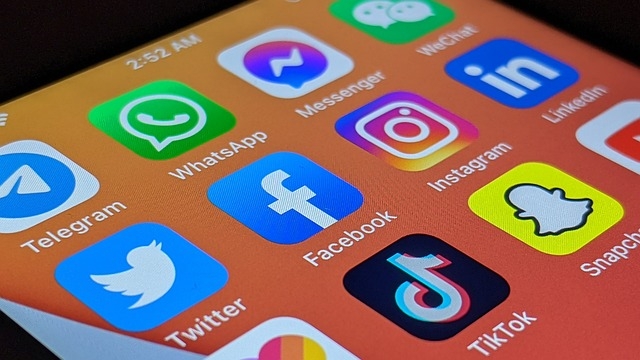Social media platforms are under scrutiny. People debate how they affect literacy and school success. Digital communication has become very popular. Evolving communication platforms which include Twitter, Instagram, and TikTok get criticized for deteriorating writing standards even though studies show this claim has no merit. According to a study by the Pew Research Center, 73% of teens said that social media helps them improve their writing because they use it regularly. Social media plays an important part in enhancing the writing capabilities of students. Social media delivers five interesting ways which elevate student writing standards according to the following analysis.
Encouraging Concise and Clear Communication On Social Media
Social media platforms encourage short and clear messages. For example, Twitter has a character limit that helps students learn how to express their ideas quickly and effectively. Since there isn’t much space, students must focus on the most important words to get their message across. Similarly, Instagram and TikTok rely on short text, teaching students to communicate in a direct way. This skill is useful for writing clearly in school.
Being able to share key information in a short and simple way is also important for future jobs. Companies prefer employees who can get straight to the point. Social media gives students practice in summarizing their thoughts, which helps with school assignments and future careers.
Thus, when balanced with academic essay writing by Essay Tigers, for instance, students can take advantage of social media to achieve high results in writing.
How Social Media Helps Students Become Better Writers

In today’s digital age, students write more than ever before—thanks to social media. Whether they’re posting on Instagram, replying in comments, or writing threads on Twitter, these platforms have become informal classrooms for developing writing skills.
Unlike school settings, social media offers a relaxed space for students to explore ideas, write freely, and get quick feedback. Let’s explore how writing on social media actually helps students grow their creativity, vocabulary, and confidence.
A New Way to Practice Writing
Students use social media daily, often without realizing they’re constantly practicing writing. They post status updates, share thoughts in comment sections, and sometimes write longer content like blogs or captions.
Because there’s no pressure from grades or teachers, social media becomes a creative space. Students feel free to try out different tones, sentence structures, and content styles. Over time, this helps them find their voice.
What makes it powerful is the instant feedback. If a post gets many likes or comments, the student knows what works. If it doesn’t, they can adjust and try again. This cycle builds writing awareness that traditional classrooms may lack.
Sometimes, students even explore deeper platform features as part of their creative growth—like how many people they can follow on Instagram to build a writing community or engage with creators they admire. Learning about platform behaviors such as Instagram following limits becomes part of the social learning process.
Trying Out Creative Writing Ideas
Social media doesn’t demand perfect grammar or academic tone. That gives students room to try out creative ideas.
They learn how to:
- Tell a story in a short caption
- Be funny in a meme
- Explain something clearly in a comment thread
- Use photos with text to communicate feelings
A student writing a TikTok script or crafting a tweet is using creativity and structure. It’s like building a writing habit—only fun. Many discover they enjoy writing once they’re allowed to be casual and imaginative.
Platforms like TikTok and Instagram require writers to be quick, clear, and engaging. This challenges students to think about audience, tone, and rhythm—without even realizing it.
Even playful choices like picking an aesthetic Instagram username involve language skills—students start thinking about tone, branding, and style as part of their digital identity.
Building Writing Confidence
When students post online, they’re publishing to a real audience. Friends, classmates, or even strangers might read and react. That’s a big deal—it gives students purpose.
The more they write, the more confident they become. Positive reactions help, but even negative comments can push them to learn and improve. Over time, students stop fearing mistakes and start focusing on clarity and style.
Social media builds confidence because it encourages:
- Trial and error
- Risk-taking in tone and format
- Exposure to real-time feedback
- A sense of audience and impact
And when apps don’t work right—like Instagram not refreshing—students even learn patience and problem-solving, which often turns into more content: jokes, reflections, or relatable posts that keep the writing going.
Learning New Words Through Social Media
One of the most underrated benefits of social media is how it helps students grow their vocabulary. Because these platforms are full of discussions about all kinds of topics—science, music, mental health, gaming, politics—students are exposed to new words every day.
They see how different people write, from funny tweets to deep Instagram captions. This helps them understand how language changes based on audience, tone, and purpose.
For example:
- Twitter threads often introduce academic or news-related vocabulary.
- Reddit exposes students to topic-specific language and detailed debates.
- Instagram and TikTok comments show how humor, slang, and creativity work together in short forms.
By reading and writing every day, students learn how people actually use language. This isn’t textbook learning—it’s real-world language that’s constantly updated.
Writing Across Different Communities
Social media brings students into many different online communities. Each group has its own “writing rules.” A Discord chat has a different tone than a Facebook group. A blog post feels different from a tweet. Learning to write across these styles teaches flexibility.
This helps students adapt their writing depending on who they’re talking to. That’s a valuable skill for the real world. Whether it’s writing a college essay or a business email, knowing how to adjust your message is key.
Students also explore writing in:
- Threads and replies (argument or discussion)
- Direct messages (personal tone)
- Storytelling in Instagram or TikTok captions
- Long posts on platforms like LinkedIn or Facebook
As they move through these spaces, students become better at shaping their writing to match the goal and the reader.
Getting Feedback and Learning from Others
Social media makes peer learning easy. Students share a post and instantly get likes, comments, shares, or replies. This feedback helps them see what’s working in their writing—and what’s not.
Here’s how students improve through interaction:
- They learn to write clearly so others understand their point.
- They notice which words or tones grab attention.
- They fix grammar or structure based on feedback.
- They get inspired by others’ creativity.
In classrooms, feedback often takes days or weeks. On social media, it’s immediate. This helps students stay motivated and keep improving.
They also see how other students write—what styles work, what posts get attention, and how language shifts based on the topic. Watching others helps them reflect on their own writing and try new techniques.
Real-World Writing Practice
More and more careers now include social media writing. Whether it’s posting updates, creating captions, or writing product descriptions, knowing how to write online is a job skill.
By using social media, students are already getting ahead. They learn how to:
- Stay on topic and within word limits
- Write for a specific audience
- Grab attention quickly
- Edit their own work
These skills transfer well to school, internships, and future jobs. Students who write well on social media often feel more ready for emails, applications, and presentations.
Even building a personal brand online helps students grow professionally. If they start sharing thoughtful posts or projects, they’re already building a resume—one post at a time.
Practicing Purposeful Writing Every Day
One of the biggest benefits of social media for students is that it encourages them to write more often without it feeling like a chore. Unlike homework, writing a caption, tweet, or comment doesn’t feel like an assignment—it feels natural. This daily writing practice, even in small doses, leads to stronger skills over time.
Students aren’t just writing for a teacher. They’re writing for real people who respond. Whether it’s getting a laugh on a meme or starting a thoughtful thread, every post is a small writing exercise. And each time they write something new, they learn to:
- Stay clear and focused
- Grab attention quickly
- Speak in a tone that fits the audience
- Use punctuation and formatting in smart ways
This is why many students who are active on social media become more confident writers in class. They’re used to writing with a goal and a voice—and they bring that skill into school assignments, job applications, and even creative writing.
The more students write with purpose, the more they grow. And thanks to the mix of fun, feedback, and freedom that social media offers, they get to grow as writers in a space that feels like their own.
Final Thoughts: Social Media Makes Writers Stronger
Despite what some people may say, social media doesn’t weaken students’ writing. When used mindfully, it strengthens it. It gives students a platform to express themselves, get feedback, and grow every day.
From casual captions to thoughtful threads, students learn to shape language for different readers and purposes. They try, adjust, and improve without fear of grades. It’s practice with purpose—and it works.
So instead of dismissing social media, teachers and parents should support students in using it well. With a little guidance, platforms like Instagram, TikTok, Twitter, and blogs become more than fun distractions—they become powerful learning tools.
Social media is where the next generation of writers is already learning. It’s time we give it the credit it deserves.





